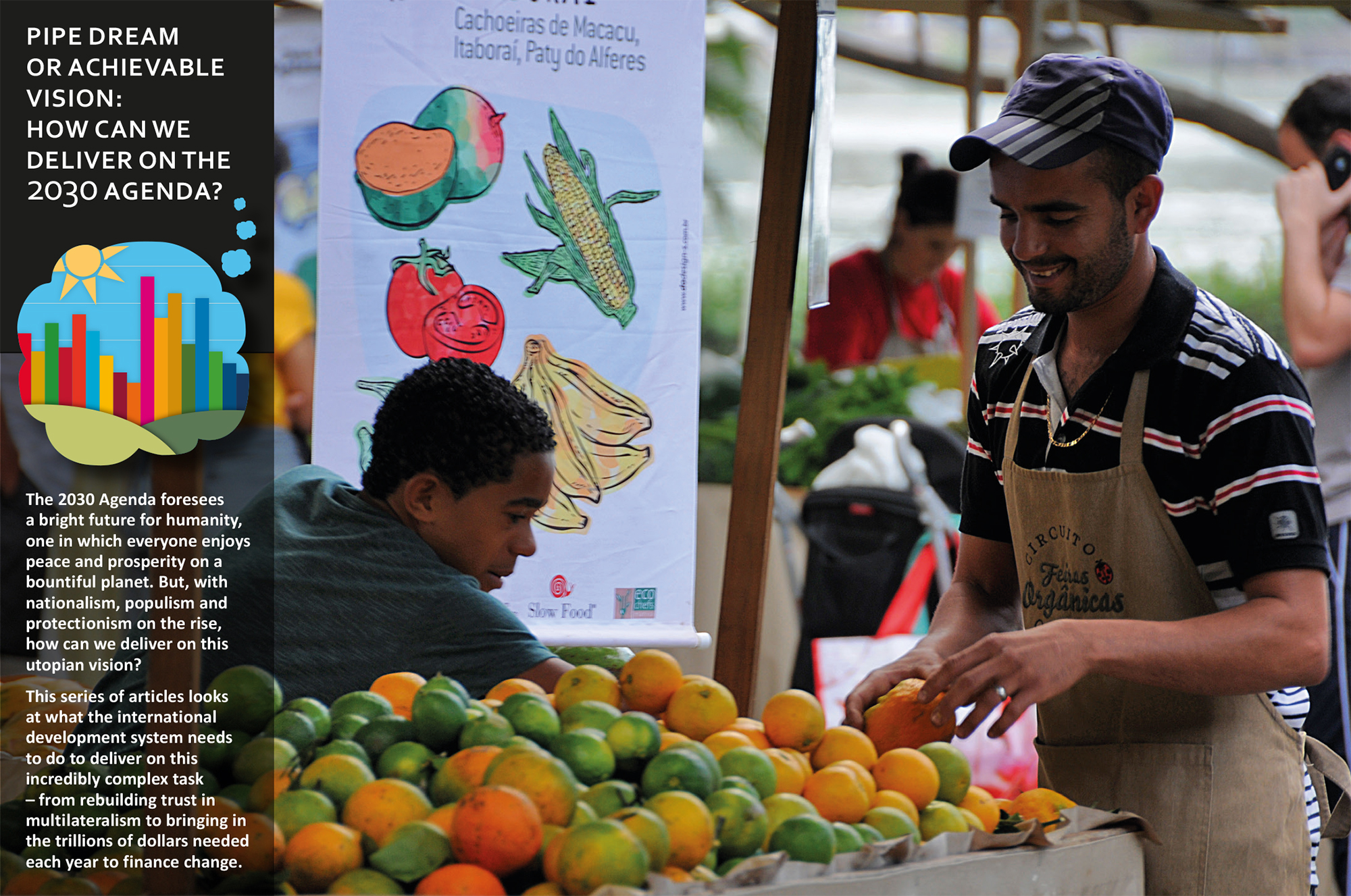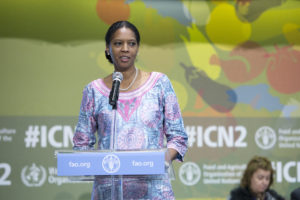SERIES TITLE: Pipe dream or achievable vision: How can we deliver on the 2030 Agenda? The 2030 Agenda foresees a bright future for humanity, one in which everyone enjoys peace and prosperity on a bountiful planet. But, with nationalism, populism and protectionism on the rise, how can we deliver on this utopian vision? This series of articles looks at what the international development system needs to do to deliver on this incredibly complex task – from rebuilding trust in multilateralism to bringing in the trillions of dollars needed each year to finance change. The first article of the series can be found here.
Another year has come and gone, bringing us ever closer to 2030 – by which point, according to our grand global plan, the Sustainable Development Goals will have ushered in a better and fairer world.
The problem is that the plan has been slow in coming together. With the clock ticking, and the United Nations admitting that progress on the goals has so far been spotty, the global community must grasp every opportunity to make up ground. Key to doing so, as outlined in the first article in this series, is finance.
Official Development Assistance (ODA) levels are not enough to meet the SDGs – where once targets were calculated in the billions, we now require trillions. Governments clearly can’t go it alone: the private sector should be at the table and fully convinced that being there is in its own interests.
“Money, in fact, finance, can make or break all our carefully laid plans,” UN Secretary-General António Guterres told private sector leaders at the UN Private Sector Forum in September 2017. “The world has more than enough savings to finance the 2030 Agenda. But today these savings are not flowing in the right direction.”
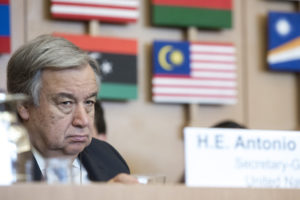
Why should the private sector invest?
Guterres’s words, while on the nose, are not exactly new. Nor have they convinced the private sector to come onboard at the scale and speed required. Yes, we are seeing plenty of companies and investment firms join global initiatives promising to do one thing or another, but the real money remains in the wrong places.
There are, however, compelling reasons for the private sector to invest in sustainability. As the Better Business, Better World report from the Business and Sustainable Development Commission, released January 2017, put it, greater sustainability can help businesses overcome global burdens to growth, deliver trillions in new market value and increase their return on capital.
“Business as usual is not an option: choosing to ‘kick the can down the road’ over the next four years will put impossible environmental and social strains on a stuttering global economy,” Lord Mark Malloch-Brown, former UN Deputy Secretary-General, and Unilever CEO Paul Polman – co-founders of the Commission – wrote in the introduction to the report.
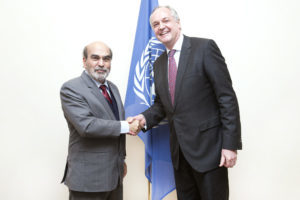
According to the commission, private sector companies who work with governments and civil society towards meeting the SDGs will “will transform their own prospects and could outperform those stuck in yesterday’s economic game”.
They are certainly correct: at the very top-level, it is obvious that a more-stable and prosperous world – free from climate, conflict and resource threats – is better for business.
But benefits for business won’t just start happening once this utopian vision is achieved. They can happen now in specific areas, with the right support. For example, partnering in areas such as tax policy and administration, where responsible actors benefit the most, is one step, as is using the tax code to promote development efforts. Here, there is a direct relation between investments and returns.
Businesses are most likely to engage in activities that benefit them and their investors. Those playing by the rules should not be penalised. So, responsible corporate actors will, and do, gladly aid efforts to tackle corruption, money laundering, and tax avoidance.
But these efforts require time and a strategic approach: The UN Global Compact developed the SDG Compass to make it easier for businesses to align their strategies. The Compass recognizes that a desire to fund global development and support the SDGs is only a start; it helps firms to understand SDGs, define their priorities, set goals, integrate sustainability and report on their efforts.
Funding is not charity – when targeted appropriately, it can strengthen stakeholder relations, grant a seat at the table in policy developments, and help stabilize society and markets through a common language aligning business strategies with global priorities. This is increasingly accepted, and private firms have lent their specialised expertise to helping others target social investments.
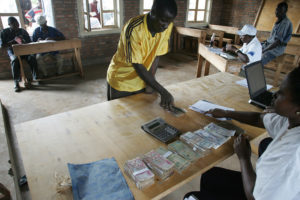
Whether a firm wants to reduce corruption, enhance innovation, or simply promote a predictable business environment with a skilled workforce, the first step is investing in these public needs. With clear social and business interests, and an infrastructure in place to help strategically guide investments, incentives for the private sector are in place.
How to facilitate private sector investment?
ODA can play a key role in mobilising finance from the private sector – through joint funding, guarantees, and blended finance, among other approaches. The OECD-driven Busan Global Partnership for Effective Cooperation is just one agreement which recognizes that the private sector, through both existing and new financial instruments, is integral to the next phase of development cooperation, and that country ownership is tied to domestic resource mobilization. The private sector can help to ensure that enough funding, invested wisely, can stay within the host country and make progress toward greater national ownership and accountability.
Blended finance is particularly exciting, as it shares risk among private- and public-sector actors. When used in combination with SDG benchmarks and performance-based indicators, through tools developed by KPMG and others, cooperation with the private sector can help ensure that investments are sustainable, and therefore, more attractive to other potential investors.
This snowball effect starts with a single agreement where investments have government-backed guarantees, loans are offered at low rates thanks to reduced risk, or investors are granted some other form of insurance.
Blended finance has come a long way since the World Economic Forum issued its “how-to” guide in 2015, and the OECD took up the issue in its 2016 Development Cooperation Report. It is happening now. As holders of capital, even firms willing to help are reluctant to aid risky investments. But governments can serve as guarantors, or provide other solutions to limit risk.
However, the current financial infrastructure – geared more toward short-term gains and liquidity – is holding back blended finance. Aligning the regulatory framework of the sector to promote longer-term sustainable investment, coupled with clear reporting against global standards, will help socially responsible corporate actors make the case to their more risk-averse colleagues.
Blended finance is, of course, just one mechanism to enhance global investments – a variety of public-private partnerships and direct investments driven by a desire to reduce corruption and illegal flows exist as well – and more are being developed.
We also must explore loss, and how many agencies are willing to accept it – which in turn has an impact on the scalability of de-risking. Platforms such as the Managed Co-Lending Portfolio Program (SIDA and IFC) can ease institutional investors with first-loss guarantees and other precautions.
There are many initiatives in place to encourage the private sector’s role in domestic resource mobilization. FAO’s Strategy for Partnerships with the Private Sector, Principles for Responsible Agricultural Investment (PRAI), and the Private Sector Mechanism (PSM) at the UN Committee on World Food Security (CFS) are all examples of existing efforts we could build on.
The PSM provides a permanent space for private enterprises involved at every step of the food supply chain, including the International Chamber of Commerce. Along with the Gates Foundation, the research community, and FAO member countries, they sit with the CFS, consulting on policy and investment needs. This sort of dialogue creates trust and shared priorities, a prerequisite for financial cooperation.
These are just a few examples in the agricultural space. Quite frankly, everybody is looking at increasing engagement with the private sector.
As with defence and diplomacy, the private sector has been involved in development for generations. What we’re seeing now is not simply a recognition of this fact, but a need for a more structured approach to development cooperation in mobilising resources, aligning priorities, leveling the regulatory frameworks governing the financial sector, and aiding in reporting and transparency.
What comes next?
We are in the middle of an evolution of government-private sector cooperation, and so need to look at the advantages of the state and the private sector, see what else we can come up with, and put new solutions into practice. The ultimate aim is not to eliminate the need for public ODA, but to reserve scarce funds for those pressing needs, and bring in private sector capital where possible.
Two trends make such efforts an imperative.
Development initiatives are increasingly tied to greater global challenges and initiatives rather than individual projects. The Rome-based agencies of the UN alone consider larger thematic initiatives in fields such as the achievement of zero hunger by 2030. Such joint initiatives could bring with it a significant decrease in the fragmentation of funding.
Secondly, local ownership, along with risk-averse donors, requires greater domestic resource mobilisation. If a country has revenue and invests in itself, global firms benefit. Achieving the SDGs could create hundreds of millions of jobs in developing countries, which creates revenue countries can use to invest in themselves.
We know that tapping into private sector finance is possible, we know it is necessary, and we know all parties involved are willing with the right set of motives. But have we identified the most efficient mechanisms for cooperation? And have all traditional providers of ODA embraced private sector cooperation to the degree necessary? If not, why? Have we addressed all possible conflicts of interest that may arise in these forms of cooperation? These are the questions we must answer next, and quickly, to have any chance of success by 2030.
The next article in the series is to be published on 24/07/2018.


